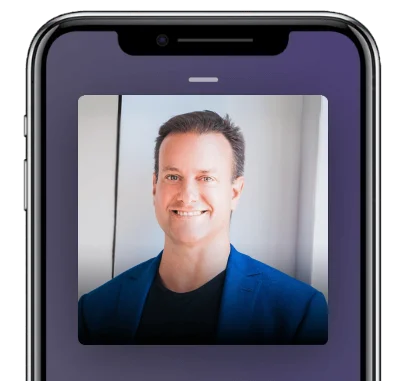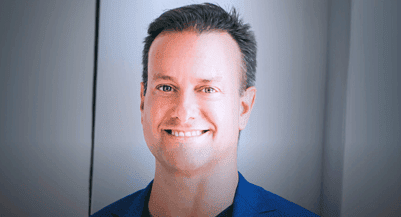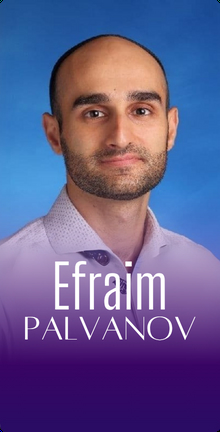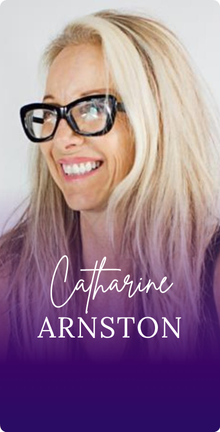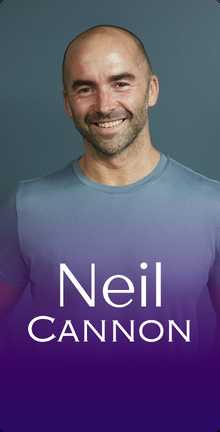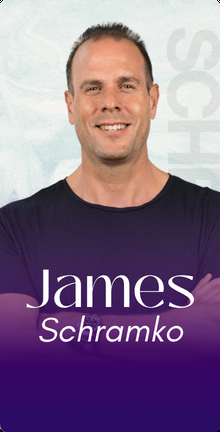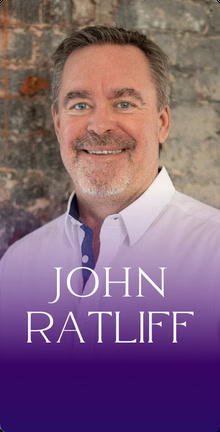In This Episode
- [00:40]Stephan introduces Dr. Greg Wells, an author of four best-selling books. He also has a Ph.D. in Physiology and continues to serve as a Senior Scientist in Translational Medicine at the Hospital for Sick Children in Toronto.
- [05:46]Dr. Wells discusses the last chapter of his book, Rest, Refocus, Recharge, which is about the impact of being in a flow state while performing some activity.
- [10:54]Dr. Wells expounds on the media psychology effect and how we can overcome it.
- [15:01]How you speak to yourself can define your reality.
- [21:09]Dr. Wells shares an exhilarating experience of being in total flow while going up the mountains of South Tanzania.
- [25:27]Stephan shares his unforgettable experience in Zambia where he helped build classrooms that led him to joining an organization that donates money in building new schools in Africa.
- [31:23]Stephan interprets the quote, “How you do one thing is how you do everything.”
- [35:37]Dr. Wells talks about the impact of refocusing your attention on the positive things that happen in your daily life.
- [42:39]Stephan and Dr. Wells talk about the advantages of knowing your vitamins and minerals level from doing complete blood work.
- [49:27]Follow Dr. Greg Wells on his social media accounts, and visit his website, drgregwells.com, to learn more about him.
Greg, it’s so great to have you on the show.
Stephan, thanks so much for having me. I appreciate it.
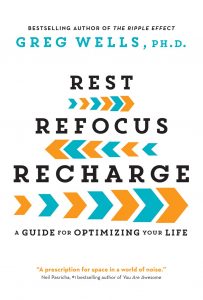
So what is the gist of Rest, Refocus, Recharge? This book just came out, and from what I understand, it’s neurophysiology of high performance. But what exactly does that mean, and why this book instead of a different book?
Great question. Thanks for asking. Because I think the book came out on like March 7, which is pretty much the same date as every bookstore in the entire world shut down. So I appreciate being able to talk about this in any way, shape, or form right now. But basically, the whole idea is I think we need to slow down to speed up, which is interesting that the entire world has been forced to slow down over the last six or seven months. I think people have had the opportunity to sort of reflect and think about what’s important to them, and maybe not be spending all of their time commuting or what our lives have been disrupted. And so the whole world has been forced to slow down to speed up.
When you think about it, if you’re going to be doing your best work, if you’re going to be creative, if you’re going to be learning, if you’re going to be problem-solving, if you’re going to think in an agile manner and come up with like new solutions to old problems for your life, your business, whatever it happens to be, we really can’t do that. If we’re hustling, if you’re go, go, go, go go, if you’re rushing around, if you’re super busy. If you’re blasting through your to-do list, which you need to do sometimes, that’s fine. But you can’t get into that creative state, you can’t get into that ideation state, if you’re so busy, if you’re so tired. So I was just hoping that we could show people that by slowing down a little bit, taking a break, pausing, slowing down, breathing, that you could live a much more fulfilling life where you’re able to reach your full potential and perform at your best. So it’s a bit of a counterintuitive approach but that’s just what I was hoping to get out to everybody right now in this very difficult time.
Got it. Is this about getting into a flow state by changing to alpha brain waves instead of beta, or is this about just being more mindful about where you put your time and focus or a combination or what?
By slowing down a little bit, you could live a fulfilling life.
Yeah, it’s a combination of all of the above. It’s sort of an explanation of what you just said, which is cool. And what we’ve discovered is that we’re hustling and go, go, go, we’re in beta, you and I are probably in beta right now, which is a very fast brainwave state. If you stuck electrodes all over our heads, you’d be able to measure the electricity flying through all the neurons inside of our brains. And we’d be having waves of electricity shoot through our brain at a very quick pace because we’re both on it, we’re both thinking, we’re both trying to have this conversation and help people. And then what happens if you slow your brainwaves down just a touch, you sort of getting into that reflective state.
Let’s say you’re reading or you’re sort of contemplating what’s going on, you’re thinking about things. That’s an alpha brainwave state when we just sort of slow down our brainwaves a little bit. And that’s when we can do strategic thinking, that’s when we can do reflection, that’s when we can do learning. That’s awesome for reading that sort of meditative state when you start to get into meditation and mindfulness, and you bring your attention back into the moment. That’s definitely when we get into alpha. A little bit slower than that, relaxing even further, slowing the brainwaves down even a little bit more, you enter into theta brainwave states. And theta brainwave states are when you are creative, when you’re ideating, when you’re daydreaming, when you’re sitting on the beach, staring out at the waves with no particular thought in your mind and sort of like standing in the shower and letting the water hit your face, and then all of a sudden, boom, you’ve got this new idea, right? This eureka moment pops into your brain. And so that’s theta, slowed down even further, and you fall asleep; that’s delta brainwaves, slow down even further, and you die. You don’t want that, like near basically flatlined.
We need to slow down to speed up. We’ll never access our ideation state if we’re so busy. Share on XBut when you mentioned flow states, flow states are super interesting because I think flow states are when all of our cognitive capabilities come together, you’re physically in the right space, you’re emotionally in the right space, and in that case, you’re probably in that alpha-theta zone somewhere while doing you know what you love to do. If you couple that, this is at the end of the book, the last chapter is all about embracing the extraordinary. In doing all of this reading and all this research, I discovered that flow states are fantastic. And I’ve worked with a couple of hundred Olympic athletes. And our goal is to get everyone into the flow at the games. Then in business, you want to take that and apply it your whole life. But what we discovered is that if you are in a flow state doing an activity that is meaningful to you, and has an impact, then you can enter into this surreal state of an extraordinary experience. And that’s really what it’s all about if you can get into the flow, doing the things that you love, and that you’re passionate about, and have an impact that can fundamentally change you and have that transformational experience that alters the way that you see the world in your life. And that can put you on a very different trajectory and unlock what life is truly capable of giving all of us.
I know that there are some flow triggers that will get you into a flow state. For example, if your life is in danger, that’s certainly going to get you into a flow state so that you are on it and making sure that you’re not making any mistakes or missteps and potentially falling to your death or whatever. Like, do you cover this sort of stuff in the book, the triggers that get you into flow?
Yeah. And, interestingly, you mentioned that. So back in December of this year, I was down in Galapagos, the Galapagos Islands off the coast of Ecuador, with my family. And that’s where you can go and just get so immersed in the wildlife and the different islands that have unique populations that evolved separately, and so you can get a unique bird species that only exist on an island. And of course, I’m a swimmer, so I would love to jump in the ocean. So I brought my daughter down, and we went swimming in the ocean one day, and we’re playing with sea lions, which was incredible because they’re just swimming around you, which is mind-blowing. But if you know sea lions, and you know what eats sea lions, well inevitably, if you’re around the sea lions, then the sharks are there. And so we swam out a little bit further and within, very short order, had encounters with probably 50-ish sharks, hammerheads, white tips, black tips, Galapagos sharks, and nurse sharks.
Flow states are when all of our cognitive capabilities come together.
Not all of them are dangerous, but some of them are big; hammerheads are big sharks. And you’re out there with your ten-year-old daughter swimming in the ocean. And you’re like that flow state you described is just like, deep, deep focus, like, there was nothing else in my mind whatsoever. I was swimming, and I was keeping her close to me; we’re navigating the situation to get back to shore, and it was safe, and people snorkel there every single day. And the sharks are not interested in you at all. But you’re still definitely in that state of flow. And so there’s no question that that’s one of how we can enter into a flow.
The other really interesting thing that happens when we’re in these states is that we get locked in. And when you’re completely locked in, in that flow state on that one particular thing, that deep focus that enables you to perform at a very high level to navigate these very difficult situations, which could be something like public speaking or swimming with sharks, or having a deep conversation with your partner, it’s all physiologically the same. There’s the other challenge that we’re faced with, which is that we get too locked in, and maybe we miss what’s happening around us. And so if you’re totally in flow, if you’re totally in that one thing, then you miss so many different things to contemplate, which is why getting into alpha is so important, which is why getting into theta is so important. We get to think about how we think and consider the other alternatives, consider the other possibilities. And that’s what I think is super important in this world right now when we could so easily be caught up in the threat of the moment.
Like, I was caught up in the threat of the sharks, but the world sort of caught up in the threat of this COVID-19 thing. Which captures the news headlines, and then the news headlines capture your attention. And then you don’t think about the other possibilities, like what’s going on with your family, what’s going on with your job, and we just get locked in on this one particular issue. So I think that the triggers are super important, and knowing how to navigate them and use them to your advantage is super important as well.
Flow state enables you to perform at a very high level to navigate very difficult situations.
Yeah, speaking kind of getting too focused on what is wrong and bad in the world. And one particular issue in this case, probably COVID, there’s a new word out that I just find kind of crazy; doomscrolling. People want to keep in that negative train of thought, and so they will keep scrolling through social media looking for worse and worse news. I caught myself doing that early on in the pandemic. I was subscribed to a telegram group that had a lot of cutting edge news and stuff that wouldn’t make it onto mainstream media. But it was really dark, and that was not good for me. So I’m curious, what is your take on focusing on the negative or focusing on the fear and what could go wrong instead of focusing on the good and the light?
I think that’s a really important point right now is we see the global effects of the algorithms that run these social media engines and how they’re designed to feed you more of what you want to pay attention to spend more time on the platforms. And so if you stop the scroll and look at something, they’re going to feed you more of that because it’s what they think you want to see. So you have to be super careful. And I have not heard that term, doomscrolling, but I certainly caught myself doing it, especially early on in the pandemic. I know about the media psychology effect, which is that anything that you are looking at, doing, thinking, or consuming rewires your brain. And so we’ve got to be super careful about what we are consuming because it will change your brain, and you’ll get addicted to that dopamine hit.
Humans are designed to look at the negative, if you think about it from an evolutionary perspective, if you’re the one that hears the crackling in the bushes around the campfire, and you’re the one that looks and you see the lion that’s about to attack you, you survive. And if you don’t look, then you don’t survive, right? So we’re hardwired to look at the negative because that keeps us alive. It’s a threat. And we’d also know that negativity captures more of your attention; it’s easier for you to remember negative things than positive things. So this is almost like we need to work against our evolutionary biology to move into the positive to be a possibilitarian, to think about what’s possible.

So one of the things I’m fascinated by right now is reimagining the future. Not necessarily returning to the past. If you think about it, in the past, like pre-COVID, we had skyrocketing rates of burnout, 25% of our population diagnosed with a sleeping disorder, 58-68% of our population with overweight or obesity, one in five of us accessing the medical system because of a mental health-related challenge. Like there were some grand epidemics around the world that I think we can overcome if we do things a little bit differently if we focus on our health, if we focus on the community, if we focus on connection if we focus on reading instead of scrolling through social media at night.
What would happen if you read the biographies of the greatest people in history for a year? Just imagine the difference in your mindset, your knowledge, your attitude. And so I’m a huge fan of exactly what you just described and curating brilliance for what we consume, and thinking positively and being constructive and not succumbing to fear and clickbait and all the negativity that’s designed literally to capture your attention so that they can feed you an ad and make some money. I think it’s a very important thing, and we have to be very careful because it is addictive, and we are sort of hardwired to do it. So we’ve got to overcome that.
When we positively communicate, it changes us for the better.
As you said, it changes your brain to keep focusing on the negative and on what is a potential horrible outcome for you that most likely won’t come to pass, but you focus on it and changes the way that your brain is wired. Just like I learned from a friend of mine who’s got a neuroscience lab, Amy Africa told me that according to this study; if you yell at your Amazon Echo, if you’re rude and negative to an inanimate object, to your Alexa, it will change your brain. So it’s hurting your neurology to talk smack to Alexa, which I’ve found to be kind of obvious after she said it. But probably people don’t realize that when they’re yelling at things, kicking things, they’re rewiring their brain.
Yeah, and let’s sort of break that down because it’s really interesting. So let’s say you’re talking to other people or you’re talking to an inanimate object, or you’re even talking to yourself. Now, the way that you would speak to others is usually controlled, you’ve got to be polite, you’ve got to be helpful, to be encouraging, the more positive you are towards other people, the more likely it is that you’re going to be able to receive the same in return. So you have to act in a certain way to navigate society and survive because you need a group of people; you can’t do everything by yourself. So then that can rewire you and the people around you. We know that if you comment positively on social media and other people on social media, that improves your mental health. If you passively consume social media, it tends to negatively affect your mental health, right.? So when we positively communicate, it changes us for the better.
Your words define your reality.
So it doesn’t surprise me that the same thing is true for an inanimate object. If you’ve got something in your house that you speak to, and you yell out, and you punch, and you kick it. That is not going to physiologically put you into a better place. But the thing that’s hyper controllable, and I think a habit that I would love everyone to consider, is how do you speak to yourself. And you probably may say things to yourself that you would never say to someone around you. You would never say the things you say to yourself to your friend, like you may put yourself down, you may tell yourself you’re not capable of certain things. And that is the real challenge because your words define your reality. And so whatever you tell yourself is going to come true. We do a lot of work with the Olympic athletes to refine exactly what the athletes want be thinking, feeling, and doing rate before the act, think, feel is the rate before you compete to control your states that you can enter into a flow. And we’ve got keywords that we use to make sure that they’re thinking about the right thing at the right time during a race. That could be something like fast, and it could be something like quick, it could be something like explode, right? Just a little cue words that are positive to make you do the things you want to do.
When I read the biographies of–because I rode my bike across Africa in 2003. And it was before the internet, so I was reading actual books–I read the biographies of Nelson Mandela, and his cue word that he used throughout his life was equality, and I read Gandhi‘s biography, and it was the truth, and I read Mother Teresa‘s biography, and it was love. And so we have these words, and the way that you speak to yourself and others in the world can define your neurophysiology, rewire your brain, change the hormonal state of your body to make you more or less predisposed to chronic illness. So yeah, absolutely. This is a very important thing you noted. And I think it’s something that we can all work on, how do we speak to others? How do we speak to ourselves? How do we speak to our Homepods or Alexas or whatever other devices we’ve got going on that’s helping us get through the day.
The flow state is achieved whenever you do things that you love and you’re passionate about- a transformational experience that has a huge impact on you. Share on XYeah. I’m impressed by what you said about riding your bike across Africa. What inspired you to do that?
That was an interesting time of life. I was just finishing up my Ph.D. at the University of Toronto in Respiratory Physiology, and defended my thesis and didn’t have a plan. It was sort of like February-ish in Toronto, which is cold. I love cycling, and I’ve been to Africa previously, visiting my sister, who was working for the UN. And my dad heard an interview on the radio, and he said, “Yeah, there’s this guy who is going to go ride his bike from Cairo to Cape Town, and try to set a world record.” And turns out the guy was from Toronto, and he was leaving shortly. And so I zipped over to his office and found him, and I was like, “Where are you going?” He had a big map on the wall with a highlighter; he said, “We’re going to go try to do that route.” So I was like, “Fantastic. I’m in.” Because I didn’t have a job with no plans until September, so I had a block of time, and I had $10,000 left on my student line of credit that I could access.
So I sold everything that I owned, I got rid of my apartment, put my car in a garage, and went to Africa with a bicycle, and a backpack and a tent and a group of 30 of us rode from Cairo, Egypt, down through Sudan, Kenya, Tanzania, Malawi, Zimbabwe, Mozambique, Botswana, and South Africa, ten countries. I think I missed one or two in there. Ethiopia was another one, all the way down to Cape Town, South Africa. So I joined them in Khartoum, Sudan, because I was a few days late, I had to defend my thesis and drop right into the Sahara Desert. So I left Toronto well below freezing, 20-30 degrees below freezing. And by the time I landed in the Sahara Desert, I think it was a plus 132 Fahrenheit or plus 50 degrees Celsius on the first day of riding. So it was a painful first couple of days but, without question, one of the coolest things I’ve ever done. The highest highs and the lowest lows were all on that trip.
Don’t let your mind wander because you never know what’s going to happen.
Wow. Did you get chased by any lions, cheetahs, or anything like that?
So it’s funny when we entered Kenya, I had a cycling outfit that was a zebra outfit because there was a world-class cyclist at the time called Mario Gibellini. And the outfit that he raced in was a zebra suit. And so I had one, so I put it on as we entered Kenya as a joke, which was probably not the smartest thing in the world to do. We didn’t get chased by the lions or anything like that, but we did have elephants walk through our campsite one night. So all around our tents were these huge footprints from the elephants that walked through. We went on Safari in Tanzania and Goro Goro Crater and saw the lions and the elephants and the cheetahs and everything in the hyenas that was pretty incredible.
That was my second time doing Safari, definitely, a bucket list item for everyone. And the one thing that did happen, though, is we were cycling in Malawi, in a group going pretty fast, and a group of cows took us out. So it wasn’t the lions to be worried about; it was all the livestock on the side of the road. It was a pretty big crash that day. And a few injuries based on these cows that were not happy about the cyclists in spandex going down these roads. The things that you think would be dangerous weren’t the things that you did not expect to be dangerous. So that was the kind of mindset we had throughout the entire trip was to sort of be very alert and very aware. Don’t let your mind wander because you never know what’s going to happen.
Right. Gotta be in flow.
Gotta be in that flow state with a bit of awareness at the same time, right? Like fully taking on everything that’s happening around you. And speaking of flow, like there was this one day that we were in flow, we were in southern Tanzania, and in South Tanzania, there’s a lot of tea plantations that are up on the mountains in the hills. So it’s these beautiful tea tree-covered mountains all over the place. And so you’re riding up these roads, there’s hardly anyone out on these roads, just a few locals but no cars. You’re going up and down through these mountains and hills for hours all day long. And it was an interesting day, and it was very cloudy. So you would come up to the top of the hill, up over all of these beautiful clouds, you’d see these tops of mountains all over the place, you drop back down into the clouds, and then write up another one and come back out of the clouds again.
Be in that flow state with a bit of awareness at the same time.
That was one of the coolest things I’ve ever done in my life. I can’t imagine ever being able to replicate an experience like that again, and you’re so in flow because your attention is there. There’s nowhere else that could possibly be in this rhythmic, repetitive exercise. You’re kind of suffering a little bit because you’re going up and down the mountains. A little bit dangerous because it’s moist to the ground, the ground is a bit wet. So you’ve got to be careful, so you don’t slide out. But then you pop out of the clouds every once in a while and see this gorgeous, amazing, beautiful, stunning environment. It’s just like, so cool. So that was one of the best days I’ve ever had in my life. And that was a flow day if you can call it that.
Amazing. So how did this change your life, this experience of going through Africa on your bike?
A couple of things I think one of the coolest things about it was that it might be aware of just how fortunate I am to have been born and won the genetic lottery to have been born in Canada because I have an infinite opportunity. Now I’ve got access to health care, education, and safety. And the worst-case scenario in Canada is still you’re on some sort of assistance so that you’re not starving, right? And in a lot of the places that I went to, there is no support whatsoever. And I met people who had lost limbs to mines; in Mozambique, there is no safety net there. They’re just surviving daily on their wits. That made me realize how fortunate I am and how lucky I am to have been born where I am. And so that was a big piece of the puzzle. And then just being grateful, I think, for everything that happened. So on the day that I got home, I went to a coffee shop in my neighborhood. And I was sitting there outside, and it was in the morning just having a coffee kind of getting reoriented to North American society.

When I was in Africa, the number one concern every single day was water. Like you just have to make sure you’ve got enough water, it’s relatively clean, you’re not going to get sick. So all day long, you think, where am I gonna refill my water bottles and just have clean water because you’re out in the environment. If you don’t get clean water, get super sick. So you don’t want that. And so when I got home, I was sitting on this side, this coffee shop and it was probably eight in the morning, the sun was coming up, and I’m drinking this coffee, and a truck goes down the street and sprays water all over the road. And it just hit the sunlight at this perfect angle. It looked like it was like gold glistening all over the roadway. It’s like, oh my God, we spray drinking water on our roads. That’s how rich we are; that’s how wealthy we are where we live that we spray clean drinking water to clean our streets.
If I went to Africa and told some of the people that I’ve been hanging out with that, that’s what we do. They would think that we were like, that’s wealth beyond any comprehension and so much of the world. And so I think that that’s probably the biggest thing that changed is my understanding of just how lucky I am. And also the need to contribute, the need to help others, the need to leverage the fact that I have a university education. I can communicate at scale through books, through courses, through apps, like all these things that we can do to help people. I’m just so driven now to do that because I know how fortunate I am. And I know how so many people around the world don’t have those same opportunities. So I’d say that’s probably the biggest thing that came out of it. For me, it was like, I’m really lucky. Let’s make sure that we don’t waste that opportunity.
Let’s make sure that we don’t waste that opportunity.
Amazing. I had an experience in Zambia, where one of the days, we did this contribution day and went to a school in rural Zambia, rebuild desks, painted classrooms, fixed doors, all that sort of stuff. And a couple of weeks later, after that trip, I met Dan Sutera at a different mastermind. So this event that I was in Africa for was the Tony Robbins’ Platinum Partner Trip, which was amazing and incredible, we went to not just Zambia, but also Botswana, and we went to South Africa, Cape Town, and all that to the area where they have sharks and did a shark dive and everything. It’s cool.
Anyways, so I came back to the States, and I met Dan Sutera, who had just founded, I don’t know, maybe three, five years earlier, a nonprofit that builds and operates schools in Zambia. I thought, okay, this is no coincidence. This is the universe saying, hey, I should do something. So I ended up donating the money for them to build another school. I then maybe a year or two later joined their board. I’ve been on their board ever since I’ve been donating a lot to the organization over the years. And all that happened from serendipity. I had a great experience in Africa, and I saw people in need, and I wanted to make a difference. And yeah, it’s been pretty cool.
The act of giving a gift is far more important than actually receiving gifts.
Yeah, it is. And I think that’s also something that we need to leverage. You don’t need to go to Africa and build a school. You can simply hold a door for someone, and you can greet someone on the street, you can look them in the eye and smile, you can hug your family, you can contribute to your community, you can help out the local library, there are so many things that you can do. And one of the interesting things is we give gifts, and I think that the act of giving a gift is far more important than actually receiving gifts. I think that the person who’s giving the gift is the one who gets most of the benefit, to be honest.
When we find these ways of contributing to make the world a better place, and whatever way that that you want that to be, whatever your local church is doing, or the local school is doing, or just what your family is up to, like, there are so many things you can do. And when we contribute, and we’re grateful for being able to do so, it puts you in a very, very different mindset and puts you in a mindset where you’re able to enjoy meaning and impact in your life. And I think that that’s just so cool. We all can do that. Because the threshold for contributing positively is so low like there are so many people that need so much help that we can do some pretty incredible things, and I think that can make all the difference in the world for that one person that you’re trying to help. We all need to do a little bit more of that in our lives for sure.
Cool. So I want to hear about the Olympic athletes that you’ve worked with. What they’ve learned from you? What you’ve learned from them? What sort of stuff our listeners can apply in their lives?
Great idea. So I’m an exercise physiologist by training. I was a competitive swimmer growing up. And all through grad school, I was a consultant for the Canadian Olympic team as a physiologist. So I would go and help the athletes and coaches design training programs. I’d go to training sessions and do the blood work and do the heart rate measurements and figure out where the weaknesses were so that we could design training programs to make them better, the chance to go to competitions with them to optimize their performance in competition, which usually involves like great warm-ups and warm downs, and then recovery protocols afterward. So I think the one main thing that we can all take away from that is that even though these athletes train at the highest possible level, the one differentiating factor I saw between those who can be successful in training versus those who are not as successful in training was the ones who approached us they were 24-hour athletes.
It's so easy to get caught up with the news we see in the media. Not being able to control what you consume is unhealthy. Share on XEveryone does the same workouts, some go a little bit faster, a little bit slower, but it’s the ones who focus on the things that they can control outside of the practice that are the ones who can make the most consistent improvements over time. For example, things like post-workout nutrition, getting great sleep, going for the massage, doing the stretching, doing the meditation, reading, and although that seems kind of like, why would that be important? Because otherwise, you’re playing video games to kill time, right? Like those who are continuously educating themselves continue to improve in their sport, I believe a little bit more just because their minds were engaged. So it was that 24-hour lifestyle that I think makes a huge difference for people consistently over time.
People often ask me, “What should I eat the day of my marathon or whatever? What’s the game-day nutrition plan?” It doesn’t matter. What are you talking about? It’s all about what you do on game day. Well, it’s all about what you eat consistently over the six months leading into game day. And I’ll take someone who eats consistently well for six months in training on the game day versus the person that eats like garbage for six months and has a perfect meal the morning of their race. So it’s just that consistency is what makes all the difference in the world.
Excellence is not an accident.
For all your listeners, excellence is not an accident. Excellence comes about as a result of consistency, routines, tactics, strategies, and eating habits. And so it’s just like, “What are you doing in the morning to set yourself up for a great day? How are you unwinding at the end of every single day? What’s your workout protocol looking like these days?” It can change but we need that protocol. What’s your go-to food to fuel you and make it easier for you to do the things you love to do at the highest possible level? That’s all the stuff that we started. The more and more work I did with the Olympians, the less it became about the heart rate in practice, and the more it became about how are you going to recover after your workouts and feel good and be happy. And that’s the game because when you dial that stuff in, excellence becomes almost inevitable.
That reminds me of a quote that I love, “How you do one thing is how you do everything.” So if you get up in the morning, and you make your bed, and you meditate, and you do your morning connection or prayer, or you do your stretching, or whatever, it helps get you into a great place for the day. Even just a simple habit, I learned this from BJ Fogg, who was a past guest on this show. He calls it the Maui Habit. And it’s simply this, you hop out of your bed in the morning, as you’re doing it, you just say today is going to be a great day. And even if you know something horrible, like, I don’t know, you’re going to court or something, you could say at least today is going to be a great day somehow. And just that one simple thing as a habit can change your life. It’s so profound, powerful, and yet so simple. So I’d love to hear what kind of routines and habits you’ve put in place that made a profound difference in terms of your level of excellence.
How you do one thing is how you do everything.
Honestly, probably what you just described there is one of the most important ones, it’s so incredibly simple. But the morning affirmation on wake up absolutely changes the quality of my day. So if you wake up and you’re like, “This is gonna be a great day.” And it’s funny because I say that exact line. My bedroom is over there, and my back porch is over here, and I walk out, and I look out the window. I’m like, “You know what, today is gonna be a great day, let’s do this.” And when I start the day; that way, everything just works better. And of course, there’s gonna be things that work and things that don’t work, but when things that don’t work come at you, you’re like, “Okay, let’s work the problem,” versus if you wake up, on the wrong side of the bed, you know, by an expression, and then that bad thing happens, you’re just gonna be like, “Well, well, of course.” Everything sort of goes downwards from there.
The morning affirmations are a big one, the evening gratitude practice is another massive one, five bullet points at the end of every day for things that you’re grateful for is something that completely changed my life when I do that. I’m not perfect by any stretch of the imagination, but the days I remember to do that and build that in. It’s very powerful. I use that a lot with my daughter. She’s ten now, and starting to understand the world and some days she thinks she discovers things and she’s a little bit upset. And so we’ll focus on some gratitude practicing, and we know now that there’s research that shows that if you do gratitude practice, it improves your cardiovascular system, it reduces your risk of cancer, and improves mental health. There’s all these incredible actual real statistics on the studies that have been done that show that there’s an actual measurable physiological impact of doing gratitude journaling. So that’s a big one.
Let me just ask you real quick, and we’ll circle back to the rest of your list. But let’s kind of, I don’t know, let’s overhear a little of your gratitude exercise. Let’s say that you’re there with your ten-year-old daughter. What are you saying to her? What is she saying to you as far as the gratitude exercise?
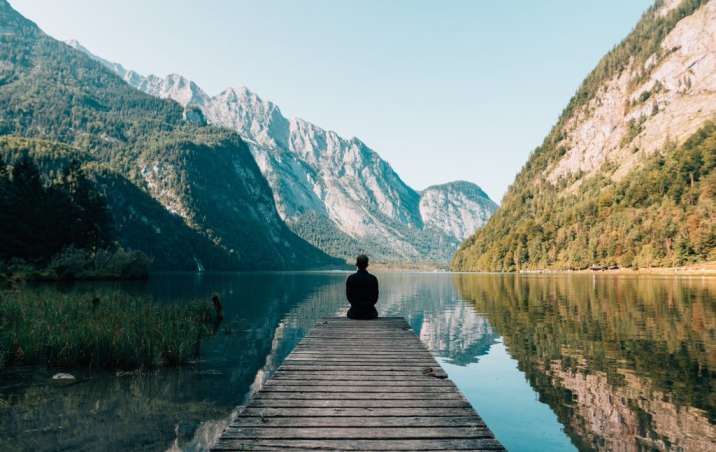
She’s got a little journal that she writes in. It’s invisible ink. So I have no idea what she writes. But, she writes in there, and we’ll do the practices. What was good today? What was hard today? And what are you looking forward to? And quite often, she’ll only be focusing on what was hard or what was bad, or what she heard or what happened at school. But the second you’re like, okay, so but I was like, “What was good today, something good happened. Let’s think about that. Let’s figure that one out.” And she’s like, “Well, you know what, my friend and I did this,” and I was like, “Okay, cool. Good enough. Let’s get that down there. What was hard today?” “Oh, I heard about this other thing in the news.” She’s all over the news. And where does she get that from? I have no idea. But anyway, she seems to know what’s going on in the world. So she may hear about something, and she’s upset about it. I’m like, “Okay, cool. Write that down. What are you looking forward to?” “Well, I’ve got Zoom practice tomorrow.” “Perfect. Let’s do that.”
So that’s the three questions that we asked the kids; that’s also amazing for dinner time. If you’re sitting around the dinner table with your family, just go around the table and go, “What are you happy about? What was good, what was bad? And what are you looking forward to?” And that process is what I use for Ingrid. For myself, it’s just five bullet points for things I’m grateful for. And that could be like. I’ve got a house. I’ve got a job even in COVID times. My family’s healthy, that’s a big one. I got a good workout in. Whatever it happens to be. And it’s funny how the simple, easy, basic things that you draw your attention towards then be like, “You know what, that’s cool. That was a pretty good day.” Not every day is going to be great. But in general, when you refocus your attention on the positive things, and the little tiny things, you realize, “You know what, no, life’s pretty good. I can get through this. We’re cool. We’re gonna make some progress here.”
Every day above ground is a win.
“You know what, you’re not dead,” that’s exactly it. Every day above ground is a win. We just want one more, and we want as many of our close friends and family as to be there with us for the journey. And, and that’s what it is, right? That is it. This is a huge opportunity; the statistics are crazy, like trillions to one that you’re human, first of all, and then enough to be able to live wherever it is that you’re living. Just go through, and it’s crazy the chances of you even existing are so infant testimony small that you’re right, that the gift of this life is just so awesome.
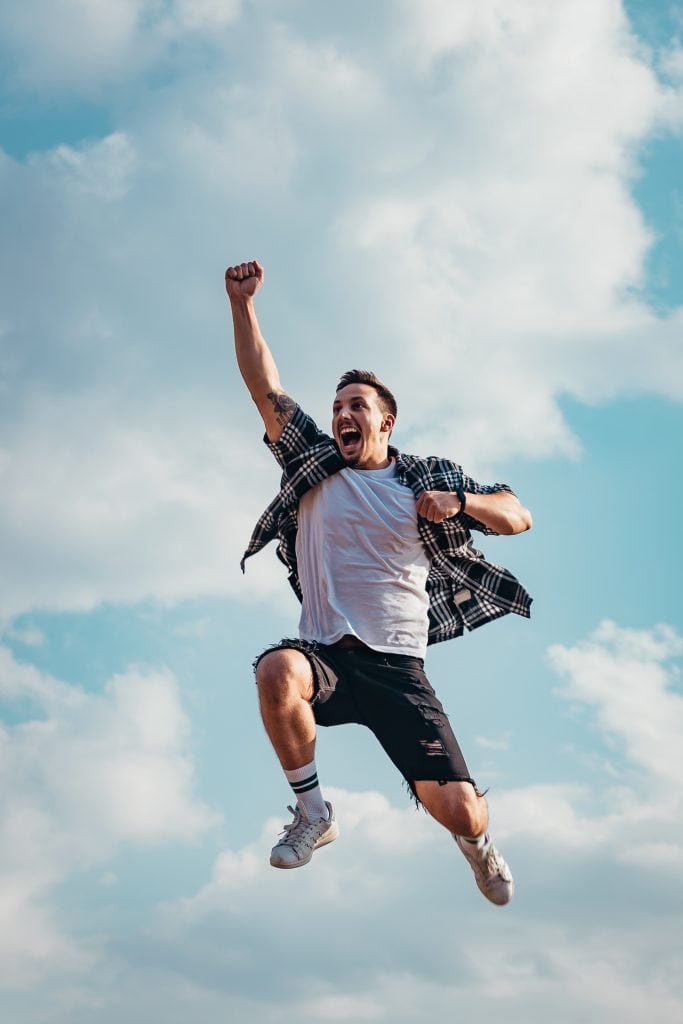
Yeah, that’s great. And I learned a distinction from my sister-in-law, Oshrat, recently, which was to be grateful for the bad stuff as well because that’s all part of the bigger picture. That’s all part of your learning and your journey, and it’s all there for a reason. So even losing whatever the job or making a bad investment or whatever, it’s all for your benefit. And then so do that as part of your exercise. And I found that to be cool.
That’s interesting. And I haven’t added being grateful for the bad stuff to my gratitude practice. I will try that and see how it goes. But you’re correct. If you think about it, when was the greatest growth in life? It’s usually after a mistake. When do you learn the most? It’s after a mistake. What leads to rapid growth? Failure. We don’t want to ever be afraid of failure. Going back to the Olympic stuff, you don’t learn anything from racing people that you’re better than. You learn from racing the people that are better than you. Because they show you where you’re losing ground, and then you can go and work on those things. We always work on strengths as well as weaknesses and lean into your strengths.
But yeah, you’re absolutely correct. It’s those downtimes that open up the greatest opportunity, those bad investments, the biggest learning; you don’t make that mistake twice. The failed relationships are what lead you to a great relationship, right? It stings at the time. You make mistakes. That is definitely what opens you up in the future. And I think that the way that sort of back to a big picture idea, the way their education system is structured right now we’re not allowing children to fail. Like you’re not allowed to fail a grade, you’re always moved forwards; I think it is a huge problem, especially where I’m from. I think that that’s leading to kids not being able to cope with failure. You’re not able to cope with fear. And as a result, they have skyrocketing anxiety rates because they arrive at university never having failed anything ever, with the snowplow in front of their lives.
Every kid gets a ribbon.
That is the bane of my existence as a parent. The eighth-place trophy is the bane of my existence, like just the worst thing we could be doing to our kids. I’m sure that’s making a bunch of people crazy and upset when I say that, but I think that it’s okay to lose. I think losing is almost more valuable than winning if it’s used the right way. The eighth-place trophy is just like, I want to throw them all out.
Consuming rewires your brain. Anything you’re looking at, doing or thinking affects you. Share on XIt reminds me of a quote that I love, “You’re either winning, or you’re learning.”
I love that. That’s a great one. Yeah, totally. And that’s true. Hundred percent true.
Yeah. All right. So you shared some great tips for how athletes have extreme excellence, train, and kind of get their mind right and so forth. But also I want to talk a bit about the kind of supplements and the devices, like the wearables, the exercise equipment, or infrared saunas.
Got it. The biohacks.
All the bio hacks, yeah. So I’d love to hear what your favorite ones are and what our listeners should be putting on their Christmas list or their holiday wish list.
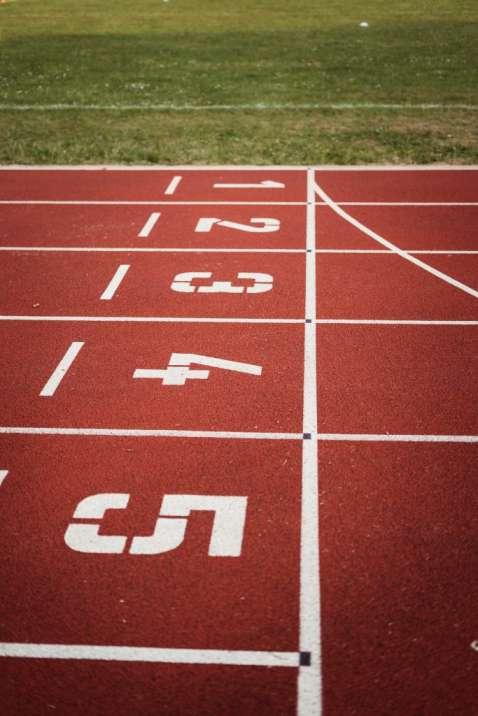
Got it. Great. So this morning before this show, a friend of mine and I went and did cold immersion. So I’ve got a lake near my house, it’s October in Toronto, Canada. So you can imagine it’s not warm. I think the waters like 48 degrees Fahrenheit right now, so it’s a little bit above freezing. It was really cold. So we went for a walk, and we jumped in the lake. So cold water immersion is a favorite of mine right now. I’m finding it’s making a huge difference for me.
Are you doing the Wim Hof breathing too?
Yes.
Awesome.
Which is pretty cool. I learned that a few years ago, at a conference in Zurich, a group of us went into the lake, Lake Geneva, I think, in the middle of the night and did 10-20 minutes of Wim Hof breathing. So I learned that I love it; it feels pretty good. The alternative for everyone is to take a cold shower in the morning, like finish your morning shower, 30 seconds of cold water right on your forehead, and you’ll get most of those benefits without immersing yourself in ice-cold lake water. So that’s a big one for me.
I’m a huge fan of saunas; the more I read about saunas, the more I’m massively a fan. The data is so profound on longevity on cardiovascular health, on mental health, so I think that infrared saunas and conduction saunas do different things. So I don’t know if one is better than the other. I think they have different approaches. I don’t have one in my house right now, but I think if I was to buy one, I would probably lean towards infrared. But again, I think there are very different physiological effects of those two things.
In terms of supplements right now, I’m just taking a broad approach. I’m not taking any specific supplements at the moment. I use a product called Living Fuel. So I use Living Fuel Superberry Ultimate. I’m not paid for that, by the way, it’s just like this one I’m using. I like them. I’ve met the owner, and I trust them to do good work. It’s, and it’s just a broad spectrum, every vitamin, every mineral, all the probiotics. So it’s sort of like a shotgun approach to supplementation. I did my blood work a couple of years ago and found some limitations and a couple of nutrients that were low in, so at the time, it was magnesium and omega-3, so I just bumped those up. So I’m doing a little bit of extra supplementation on omega-three.
So I highly recommend your listeners that once a year get complete blood work done so that you find out what are your levels of all your vitamins and minerals. And that way, you can supplement your actual blood work, not just randomly. So that’s a personalized medicine type thing.
You’re either winning, or you’re learning.
So I’m curious, what are some of the levels that you’re happy about for you? As for me, I have a vitamin D level of 100.
Okay.
That’s pretty good. I mean, I don’t want it much higher than that. I mean, there’s a potential risk of kidney stones and stuff, but you want really strong vitamin D levels to fight or be resilient against the novel coronavirus. So I learned about that from Dr. Mercola. Anyway, what are some of the levels you’re quite proud of?
I think the biggest shift that I made was I did my genetics and my blood work at the same time. So I discovered bad genetics for omega-3, fatty acid absorption. And when I looked at my blood work, I was like, yep, there are almost no omega-fatty acids in my blood even though I eat a reasonably healthy diet and a lot of fish. So I take four times the recommended dose of omega-3s, and that resolved itself relatively quickly. So I thought that was pretty cool.
The one number that I’ve been working on getting down because again, very bad genetics for cholesterol, is some bad cholesterol numbers. And I know that there’s a middle ground there, and I don’t think that our traditional approach to thinking that cholesterol is responsible for all cardiovascular diseases necessarily is correct. But I know that super-low cholesterol levels are bad and super high levels are bad. So I’m trying to optimize the number in the middle. And so bringing that back under control. Believe it or not, decreasing simple sugar and baked good intake was sort of the way that I did it because I would occasionally have a scone or something like that when I was traveling. So I got rid of that, that’s gone down.
Be kinder to yourself. You would never say the things you say to yourself to your friend. Share on XThe other number that I’m super interested in managing as A1Cs, that’s glycosylated hemoglobin; it’s just like the sugar that binds to the hemoglobin molecules in your blood. And that’s a very good indication of your average sugar levels over the last six months. And so I’ve been bringing that down into a more controlled level, sort of, out of my endurance sports background probably had a little fuel, a little bit too much on carbohydrate, we’re just doing that a little bit differently these days. So those are some of the big ones that I’ve been paying attention to that I think have very profound implications for several different cardiovascular diseases.
If there’s sort of one number that everyone could potentially look at and be like, this is one thing I’m going to hang my hat on, and it would be inflammatory markers, like CRP would be one of them, which is c-reactive protein. So we’re just looking to lower inflammation in our bodies because that’s associated with cancer, Alzheimer’s, cardiovascular disease, depression, and a bunch of other conditions as well. So those would be the big ones that I think everyone could sort of taking a look at that would have broad-ranging implications for the vast majority of diseases that the world is faced with at the moment.
Are you doing continuous glucose monitoring?
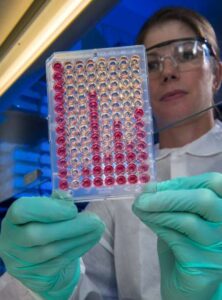
I’m not doing continuous glucose monitoring. I only do it every six months just to sort of do my A1cs. That gives me the long term sort of view of it, but I’m fascinated by that. So if you’re doing it, I’d be interested. I’m not doing that one, I do. We do glucose monitoring when we’re on the expedition. So we climb mountains and stuff like that we do monitor our glucose levels because you’re at altitude and all those other things. I do it when I’m on expeditions, but not in day to day life. But if you’re doing it, I’d love to hear about your experience with it.
So I’m about to start. I have the device. It’s from Abbott Labs. But since I got the device and the last two weeks, it doesn’t hurt at all. You put it behind your arm, like on the tricep. And yeah, just gives you continuous monitoring, and then you have a handheld device, but there’s an even better device to use, which is called Levels. I heard about it from Dave Asprey. levelshealth.com, I think, is the website. I don’t get any endorsement like there’s no fee for that. The thing about continuous glucose monitoring is that if you’re eating, let’s say just something sugary, like sneak in a little snack or something, you get immediate feedback, what it’s doing to your bloodstream and your glucose levels. That might be enough to say, and I’m not going to do this anymore. So I’m hoping that’s the case. I was going to put this device on a few hours ago, but my wife was busy, and I didn’t want to put it on myself. But it will go on today. And it doesn’t hurt, so don’t feel like you’re not gonna do it because of the pain. There is no pain.
Interesting. I will have to check back on that to see how you’re doing on that one. But wearables, I think that there’s going to be glucose monitoring. It’s not too far off in terms of some of the wearable devices that don’t require a blood sample. I know that that’s in the works. So we’ll see where that lands in the next couple of years. And that might go to a lot more people, which would be great, because the number of people with diabetes, I think it could benefit from that.
Yeah. Do you have any wearables that you are normally?
Yeah, so I’ve got an Oura Ring.
Yep, me too.
It helps me to figure out sleep. Judith, my wife, is currently taking it, so she’s now using the Oura Ring. I’m working pretty hard with the Apple Watch at the moment just to try to figure out all of the things that it can do. My lab has built an app called Viivio, which tracks sleep nutrition, exercise, and heart rate variability to give you individualized recommendations on what to do. So I’m pretty interested in the Apple Watch platform at the moment, especially given that the tech advances that they’re making. I think Whoop is interesting. I’ve got several people that I speak to that are using Whoop to track recovery. So a lot of trainers are in that one. But I think Oura and Apple Watch are my two go tos at the moment.
Have you seen this before? This is called Hapbee.
Okay.
You wear it on your head, or you can wear it around your neck. And I’m not going to do that right now because I’ve got my earbuds on. But the idea of it is, you can choose from these different frequencies like happy, alert, focused, relaxed, sleepy. And if you feel it, it’s based on very ultra low-level frequencies. I’m a geek, so I don’t just have–they’re a client of mine too. But I have things like the Muse.
I’ve got the Muse.
Yeah, I got all the gadgets.
I’ve met the team of Muse. They’re wonderful. I’ve been to their offices. I Love them. They’re really good people, and they’re doing some really interesting stuff. I think it’s cool technology. I think the fact that they’re now integrating breathing and heart rate into brainwave measurement is very cool for the guidance that they’re giving you. People want to learn how to meditate. I think Muse is a really good tool for learning how to meditate.
Yeah. Ariel Garten was one of my guests.
Oh, nice. Yeah, she’s great.
Okay, so I know we’re out of time. So where do we send folks who want to get your app, they want to read your books, they want to follow you on social media, where do we send them?
I appreciate that, like, we could keep going and do this for another hour. I feel like there is no problem. But if anyone wants to connect with me, it’s DrGregWells.Com. All my social media are @drgregwells. If anyone wants to check out the new Apple Watch app, it’s Viivio, and we’d be honored and privileged to chat with any of you. So if anyone messages me, just mention you are one of Stephan’s listeners, and I’ll be sure to answer you, promise you, I’ll get back to you with any DMs that people send me.
Awesome. Well, thank you so much, Greg. This was a lot of fun. You’re awesome.
Honored privilege. This is amazing. Let’s do it again. Thank you so much.
All right. Take care.
Take care.
Links and Resources
Connect with Dr. Greg Wells
Apps/Tools
Books
Businesses/Organizations
People
Previous Get Yourself Optimized Episodes
YouTube Video

